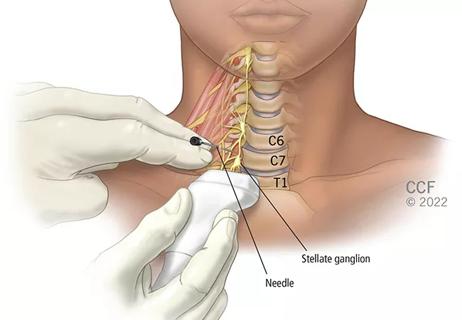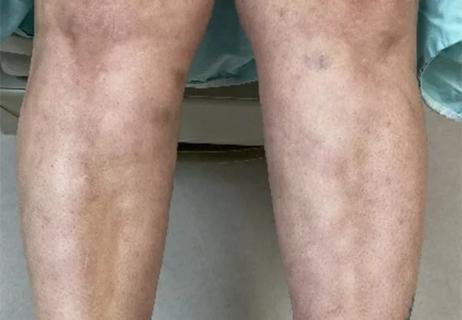ReCOVer clinic and Geriatric Successful Aging Program work together

Long-term COVID-19 symptoms in adults age 65 and older appear to be the same as in younger adults. But those symptoms compounded by chronic disease, mobility issues and other comorbidities common in older adults can make recovery more complicated and prolonged, says Cleveland Clinic geriatrician Ronan Factora, MD. That’s especially true of COVID-induced brain fog.
Advertisement
Cleveland Clinic is a non-profit academic medical center. Advertising on our site helps support our mission. We do not endorse non-Cleveland Clinic products or services. Policy
“Problems with memory, focus and thinking are treatable, but we first need to distinguish brain fog from other cognitive impairments, such as dementia, delirium and depression,” says Dr. Factora. “Early intervention is important for all of these conditions, and treatment varies by diagnosis.”
To fast-track patients with brain fog complaints, Cleveland Clinic’s Center for Geriatric Medicine is collaborating with the health system’s new reCOVer clinic, an intake hub for patients with lingering COVID-19 symptoms. Patients age 65 and older that report brain fog during their intake evaluation are referred to Geriatrics’ Successful Aging Program. There a geriatrician conducts cognitive assessments and provides ongoing monitoring.
“Early in the pandemic, older adults were more concerned about dying from COVID-19. Now the focus is on managing long-lasting symptoms,” says Dr. Factora. “In addition to providing initial care, the reCOVer clinic is helping us collect data on these patients, so we’ll be able to study what accelerates or delays recovery from conditions like brain fog.”
The reCOVer clinic began seeing patients in February 2021. Patients undergo a series of evaluations, exams and lab tests — to assess everything from heart and lung function to inflammation and vitamin deficiency — and then are referred to Cleveland Clinic specialists as needed.
“Most of the patients I see, regardless of age, present with exertion intolerance, like breathlessness or chest discomfort; fatigue and cognitive change,” says Brittany Baloun, MSN, APRN-CNP, one of several providers in the clinic, which is headed by infectious disease physician Kristin Englund, MD.
Advertisement
Prior to their visit, patients complete several questionnaires, including the Neuro-QoL™ assessment, which helps detect changes in neurological function.
“I also ask every patient age 65 and older about specifics like forgetting a family member’s name, forgetting to turn off the stove or lock the door, and confusion while driving or paying bills,” says Baloun. “The Neuro-QoL tool supplements that anecdotal information and helps me quantify cognitive impairment.”
Nearly every patient age 65 and older is introduced to the Successful Aging Program and offered a consultation.
“We especially promote the program to patients struggling with cognition or mood disorder,” says Baloun. “The program has the resources to diagnose and treat the patient, whether they have brain fog or another condition that has worsened following a COVID-19 infection.”
According to Ardeshir Hashmi, MD, Section Chief of Cleveland Clinic’s Center for Geriatric Medicine, all patients referred to the Successful Aging Program are evaluated for:
Advertisement
Distinguishing COVID-induced brain fog from dementia, delirium or depression in older adults is challenging, says Dr. Factora.
“First we ask if there were cognitive problems prior to having COVID-19,” he says. “If there were, then perhaps what we’re seeing is worsening of a preexisting condition. If it’s truly COVID-19 brain fog, there is usually a sudden, rapid decline in cognition. The timing and speed of decline is indicative.”
There is no evidence that COVID-19 causes dementia, he says. Dementia usually takes years to progress.
Patients with suspected brain fog have the same workup as all patients presenting with mentation concerns. It starts with blood testing and progresses to structural neuroimaging, if needed. Unremarkable results further indicate brain fog.
Some patients referred by the reCOVer clinic have brain fog due to delirium. Treating delirium involves addressing the underlying trigger, such as treating dehydration or adjusting medication.
“Delirium can clear up over a period of weeks or months — even 1-2 years — as long as there are no underlying cognitive conditions,” says Dr. Factora. “We don’t know what will occur with COVID-19 brain fog or delirium. That’s why we’re watching how it evolves over time.”
Delirium can be accompanied by vivid hallucinations and even paranoia, adds Dr. Hashmi, who sees similar reports in patients with COVID-19 brain fog.
“Brain fog, delirium, hallucinations — everything is treatable, yet the treatments are very different,” says Dr. Hashmi. “Depression also can cause brain fog, but again it can be treated.”
Advertisement
Correctly diagnosing the cognitive complaint is important, especially in the case of dementia.
“All dementias are incurable and progressive,” says Dr. Hashmi. “And all medications that we have to treat them are designed to prevent cognition from worsening. The sooner we start treatment, the more of a patient’s function we can work to preserve.”
There are multiple tools to screen for underlying conditions contributing to brain fog:
The Successful Aging Program also now administers a computer-based cognitive assessment that uses artificial intelligence (AI) to adapt screening for each patient. This improves the sensitivity of screening for patients with a higher cognitive reserve, who may be able to outsmart standard pen-and-paper tools like MoCA and MMSE.
“AI-based cognitive testing gives patients questions in progressively increasing levels of difficulty to determine their upper limit of cognitive ability,” says Dr. Hashmi.
Cleveland Clinic patients use Cognivue testing, the only computerized cognitive assessment currently approved by the U.S. Food and Drug Administration. However, Cleveland Clinic’s Center for Geriatric Medicine is helping develop another as part of a National Institute on Aging grant.
Testing involves tasks such as clicking numbers or letters in certain sequences and completing memorization challenges. The computerized assessment takes about 10 minutes (compared to 30 minutes for pen-and-paper testing) and simultaneously measures domains including attention, executive function and speed processing.
Advertisement
“All memory impairment isn’t the same,” says Dr. Hashmi. “We’ve seen many patients with brain fog who are concerned because a ‘memory pill’ they’ve been taking isn’t working. They’re reassured when they learn that dementia medications won’t work on brain fog if the underlying cause is not dementia.”
Patients often think nothing can be done to treat brain fog and are fearful that they’ll never get better, he notes.
“We will learn more as we study brain fog over time,” says Dr. Factora. “For now, one of the most important things we do for patients that come to us from the reCOVer clinic is reassure them that their brain fog likely will improve.”
Advertisement

Patients report improved sense of smell and taste

Clinicians who are accustomed to uncertainty can do well by patients

Unique skin changes can occur after infection or vaccine

Cleveland Clinic analysis suggests that obtaining care for the virus might reveal a previously undiagnosed condition

As the pandemic evolves, rheumatologists must continue to be mindful of most vulnerable patients

Early results suggest positive outcomes from COVID-19 PrEP treatment

Could the virus have caused the condition or triggered previously undiagnosed disease?

Five categories of cutaneous abnormalities are associated with COVID-19